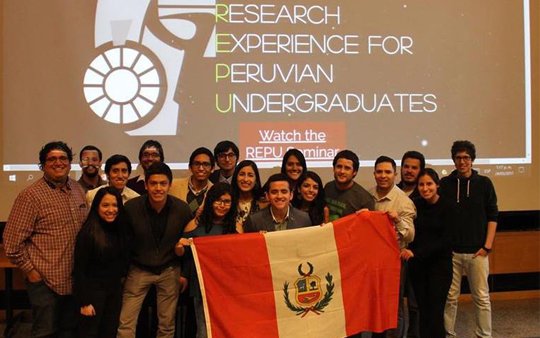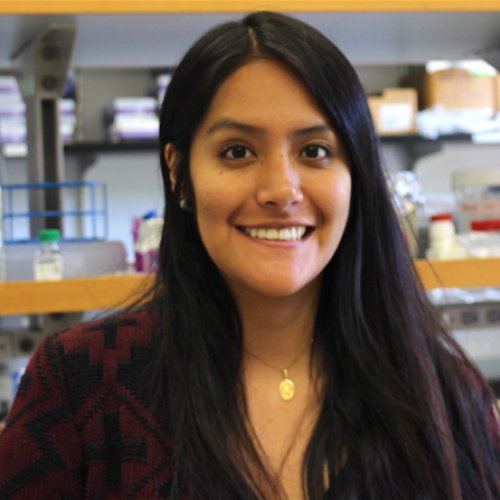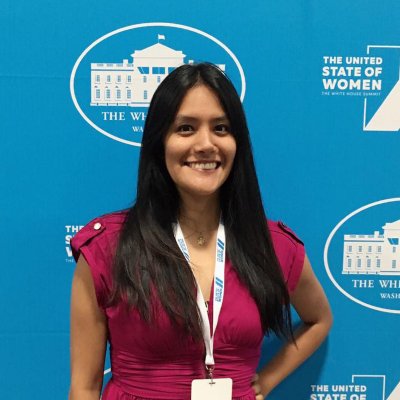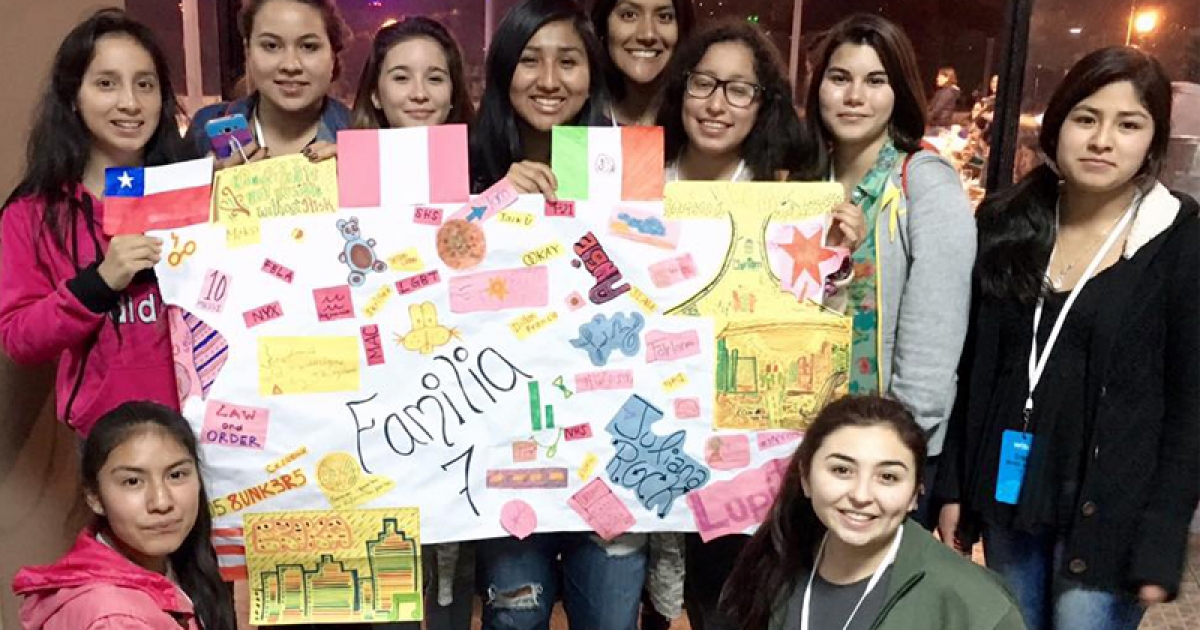“Personal Circumstances Have Taught Me How Valuable Mentorship Is”
Paola is from Peru. She is very aware of how the societal and cultural pressures influence people’s behaviour and decisions. Thus, since very young, Paola has been committed to increasing access to quality education, with a particular focus on gender equality. She has been, and still is, very involved in initiatives to support and empower women in STEM and future female leaders in STEM both in the US and in her home country, Peru. Paola Moreno-Roman's mentor is Geraldine Sharpe-Newton.
Q: Tell us a few things about your country, and also your life's story!
A: I was born and raised in Peru, a beautiful country with abundant wildlife, rich history, exceptional food and full of kind people who will go out of their way to help you. I grew up in a hard-working, indigenous family. I majored in Biology in Universidad Peruana Cayetano Heredia (Peru). In 2012, I moved to the US to start my PhD studies in Cellular and Molecular Biology at Stanford University. Since very young, I have been committed to
increasing access to quality education, with a particular focus on gender equality. Thus I have been, and still am, very involved in initiatives to support and empower women in STEM and future female leaders in STEM both in the US and in my home country, Peru.
Q: What is your view of the world as it is today? And how do you define the concept of a better world?
A: I view the world as an amazing place full of life and potential that, sadly, it is very fragmented now. This fragmentation seems to be intensifying every day. To me, a better world would be a more unified, empathetic and tolerant world, where humans cohabitate with other living beings peacefully.
Q: What are some of the key challenges in your society?
A: I believe that the key challenges in our society are inequality, inability to have healthy discussions and inability to enjoy the journey of life. Nowadays, many people are so focused on reaching a particular goal, that they put all their energy into that and forget to enjoy the process, to embrace the failures, to listen and connect with others. Once they reach their goal, they focus on setting a new goal and forget to celebrate their successes with their loved ones. Thus, many people are trapped in this never-ending pursuit of happiness, when in many cases it is within hand’s reach and they just need to pause.
they thought were unattainable for people from our background. Furthermore, as a young Latina and international student in STEM, I understand the struggles international students and women in STEM go through. All these experiences have led me to place a high value on mentorship and diversity and taught me the importance of mentors.
Q: Why is the role of a mentor important for you?
A: My personal circumstances have taught me how valuable mentorship is. When I was younger, I thought of a mentor as a person who could provide guidance and advice on all areas of my life. However, as I grew up, I learnt to recognise and acknowledge all the people in my life who were mentors in particular areas and to whom I was a mentor of without realising it. Mentors are not only academic advisors but friends and family members as well.
Q: Do you have a lesson that life has taught you and you would like to share?
A: Life has taught me many lessons that have built my resilience, which has allowed me to overcome various hardships I faced and to bounce back from difficult experiences. Acknowledging my resilience helped me get to know myself better and added a positive value to diverse challenges I faced.

Q: Name a project, a foundation or a person in your country that you think is doing great work in helping improve other people's lives!
A: I would like to mention two amazing organisations that are doing an incredible job in creating a better society:
- Mini Academy of Science and Technology: A Saturday science enrichment programme for 8-11-year-old girls in Peru, where they use science as a vehicle to empower Peruvian girls and develop their inner curiosity, critical thinking, and self-esteem. I am part of their Advisory Board. www.mactecperu.com
- Research Experience for Peruvian Undergraduates: An organisation that seeks to build and maintain a community of professionals who possess a highly collaborative spirit and who is committed to the development of technological and scientific capacity in Peru. I am one of the co-directors. www.repuprogram.org
Q: Share with us a phrase, a poem or a story that you love or you find interesting!
A: People are often unreasonable, irrational, and self-centered. Forgive them anyway.
If you are kind, people may accuse you of selfish, ulterior motives. Be kind anyway.
If you are successful, you will win some unfaithful friends and some genuine enemies. Succeed anyway.
If you are honest and sincere people may deceive you. Be honest and sincere anyway.
What you spend years creating, others could destroy overnight. Create anyway.
If you find serenity and happiness, some may be jealous. Be happy anyway.
The good you do today will often be forgotten. Do good anyway.
Give the best you have, and it will never be enough. Give your best anyway.
In the final analysis, it is between you and God. It was never between you and them anyway.
~Mother Teresa’s adapted version of Kent M. Keith’s poem
Q: Tell us one thing that you have learned from your mentor.
A: Be kind to yourself.




